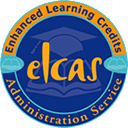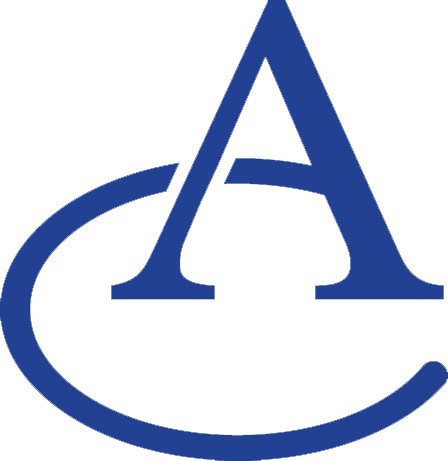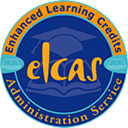Coaching & Mentoring at a Strategic Level ‑ ILM Level 7







Course Overview
This course leads to an accredited qualification:
Level 7 in Executive & Senior Level Coaching and Mentoring

| Course Summary | |||
|---|---|---|---|
| Tutor-led Learning: | Variable based on modules selected | Total CPD Earned: | Variable based on modules selected |
| CPD Accredited by: | ChTC CPD | ||
| Qualification Registration: | ILM level 7 | ||
| ILM Level 7 Qualification Support Summary | ||
|---|---|---|
| Supporting Features | Certificate | Diploma |
| Group Tutorial Sessions: | 5 x 1 hour duration | 5 x 1 hour duration |
| Group Supervision Sessions: | 3 x 2 hours duration | 6 x 2 hours duration |
Mastering Your Coaching & Mentoring Practice
This advanced programme is designed for experienced practitioners who currently offer, or aspire to offer, coaching and mentoring services to executives and senior leaders operating at strategic levels within organisations.
You’ll explore the complexities of working with senior clients, gaining insight into the challenges they face and how these shape and influence effective coaching and mentoring practice.
Programme Overview
Delivered over seven days in a modular format, this comprehensive programme builds from strong foundations to strategic mastery:
- Module 1 (3 days): Strengthen your core coaching and mentoring skills, building confidence and structure in your practice.
- Module 2 (2 days): Navigate organisational complexity, deepening your systems thinking and strategic awareness.
- Module 3 (2 days): Refine your credibility and presence to coach at executive level, enhancing your capacity to work with senior leaders.
Why modular?
To explore the rationale for the ChTC Modular Training Approach - see the About the programme - MODULAR FORMAT tab below.
Following the modules, participants apply their learning in real coaching or mentoring engagements, reflect on their experiences and map their continued professional development.
Expert-Led Learning
All ChTC programmes are shaped by leading research, best practice, and extensive industry experience. Our tutor team brings a wealth of practical insight alongside academic and thought leadership contributions, ensuring your learning is relevant, rigorous, and deeply enriching.
Accreditation
✔ ILM Level 7 Accreditation in Executive and Senior Level Coaching & Mentoring
✔ Dual Accredited by the Association for Coaching
To achieve certification, participants must:
- Attend all seven learning days
- Complete the required number of coaching or mentoring hours
- Engage in tutorials and coach supervision
Which option is right for me?
One credit typically equates to 10-hours of learning at your chosen qualification level.
A Certificate refers to a qualification size of between 13 and 36 credits and which would take a minimum of 130 hours to complete.
A Diploma is the largest qualification starting at 37 credits and requiring a minimum of 370 hours of study commitment.
Details of the specific unit requirements for each option, may be found under the ASSESSMENT tab below.
Next Available Course
-
Duration: 3 Days
2 March 2026 00:00
4 March 2026 00:00
-
Duration: 2 Days
13 April 2026 00:00
14 April 2026 00:00
-
Duration: 2 Days
18 May 2026 00:00
19 May 2026 00:00
-
In PersonVirtualBlended
| Pricing & Qualification Options | ||
|---|---|---|
| ILM Level 7 in | ||
| Executive & Senior Level Coaching and Mentoring | ||
| Option | In Person | Virtual |
| Certificate | 2599 | 2354 | Diploma | 2999 | 2754 |
| Prices exclusive of VAT | ||
Online booking launches
13th October 2025
Fancy an additional pre-live discount?
Simply email us with the course you’re interested in, and we’ll personally send you an exclusive, one-time offer available only until
Midnight 12th October
Act now – this discount offer will not be repeated.
About the programme
Take a closer look – explore each tab for detailed programme insights!
- Learning Outcomes
- Modular Format
- Delivery Mode
- LMS
- CPD
- OFQUAL
- Assessment
- Tutorial Support Sessions
- Supervision Sessions
-
Benefits for individuals
- Analyse the knowledge, skills, behaviours and practices required for effective and ethical coaching and mentoring at the senior and strategic level
- Raise your awareness of the complexities of operating at this level
- Practice your senior and executive coaching and mentoring skills through participation in observed coaching or mentoring sessions
- Explore and benchmark your offer as a freelance coach or mentor
- Deepen your reflective and reflexive practice as a coach or mentor
Benefits for employers
- Implement coaching in complex working environments or at a strategic level in your organisation
- Ensure your organisations coaches and mentors are properly equipped to operate as safe, ethical and effective practitioners with your most senior people
- Create a coaching and mentoring culture where senior managers and leaders demonstrate their commitment to supporting their own and others’ development and performance improvement
-
Rationale for the ChTC Modular Training Approach
Coaching and mentoring are broad and nuanced disciplines. The nature of the work can range from relatively straightforward topics, such as skills development or performance improvement, to highly complex and personal issues, including feelings of imposterism or navigating intricate organisational dynamics.
When supporting clients through more complex narratives, it is essential that coaches and mentors have the knowledge, skills, self-awareness, and insight to engage in a way that is both ethical and psychologically safe for the client, themselves, and the wider organisation.
At ChTC, we believe that the capabilities required to coach or mentor effectively in complex contexts cannot be developed in just a few days of classroom learning. For this reason, all our coaching and mentoring programmes involve working with multiple clients, alongside opportunities for structured reflection, both individually and through formal coach supervision.
Our advanced programmes (Level 5 and Level 7) are delivered in a modular format to allow participants the time and space needed to practice, reflect, and deepen their professional practice over time.
Module dates can be found on each course information card, in the ‘Upcoming Course Dates’ section below.
-
Whether you attend in person or join virtually, you are part of a fully live and interactive experience, where your presence and participation are essential.
This programme is accessible in the following modes:
In-person
Our in-person courses are designed to provide an immersive learning experience that fosters direct interaction with instructors and peers. You'll benefit from a dynamic classroom environment where ideas are exchanged freely, hands-on activities reinforce your learning, and real-time feedback enhances your understanding. The personal connections you build in our face-to-face sessions create a supportive community that extends beyond the classroom, offering valuable networking opportunities and collaborative projects. With access to our cutting-edge facilities and resources, attending in person allows you to fully engage with the course material and participate in spontaneous discussions that can enrich your educational journey.
Virtual Classroom
Our virtual classroom brings the quality and engagement of in-person learning to you, wherever you are. Leveraging the latest in online education technology, our virtual courses are designed to be interactive and engaging, with live lectures, real-time discussions, and collaborative activities that mirror the in-person experience. You'll have the flexibility to join from the comfort of your home or office. Our virtual platform ensures that distance is no barrier to accessing high-quality education, with all the tools you need to succeed, including digital resources, virtual breakout rooms for group work, and direct communication with instructors and fellow participants.
Hybrid
Some of our programs offer the same live training to both in-person and virtual participants, ensuring a cohesive and integrated learning experience for all. As we develop our skills in various co-coaching sessions, in-person attendees will have the unique opportunity to coach both online and face-to-face, bridging the gap between traditional and digital environments. This dual-mode coaching experience is invaluable in today's world, where the ability to navigate and excel in both physical and virtual spaces is increasingly essential. By mastering the art of hybrid coaching, you’ll gain practical skills that are not only relevant but critical for thriving in a rapidly evolving professional landscape.
Blended
This flexible learning model allows you to tailor your educational experience to seamlessly fit your lifestyle, offering the best of both in-person and remote participation. With the blended approach, you have the freedom to attend sessions on campus when you can, enjoying face-to-face interactions and hands-on experiences, while also having the option to join remotely whenever needed. This adaptability ensures that your learning remains consistent and uninterrupted, regardless of your location or schedule. Whether you’re balancing work, travel, or other commitments, the blended model empowers you to stay engaged and fully participate in your education on your terms.
-
Advantage LMS
Our Learning Management System (LMS) is a user-friendly digital platform designed to deliver, manage and track all your educational and training content in one place.
It streamlines the learning experience by providing a centralised hub where you can access course materials, complete assessments, engage in interactive activities, and receive personalised feedback.
As a participant on a ChTC programme, you’ll receive access to our LMS from the moment you book with us.
Key Features and Functions:
- Update your personal details
- View and manage your enrolled courses
- Download joining instructions and pre-course workbooks
- Access learning resources and materials
- Book support services such as tutorials (additional services may vary depending on your course)
- Upload assignments for marking
- Receive assessor feedback and download your mark sheets
- Track your progress throughout the programme
-
By undertaking this course you will also earn CPD accredited by:
ChTC CPD
ChTC CPD is the trust mark we add to our training to demonstrate the high value of a learning experience for our participants.
CPD is the ongoing process through which professionals maintain and enhance their knowledge, skills, and competencies throughout their careers. Whilst CPD is mandatory only in some industries such as finance, healthcare, law and others, continuous learning on and for work is part of the natural competence development process for all individuals engaged in any professional activity.
It is not about the validity of our professional knowledge; instead, it focuses on our ability to deliver training that enables our participants to achieve their professional goals, but these rely on them being added .
-
The Office of Qualifications and Examinations Regulation

The Office of Qualifications and Examinations Regulation (Ofqual) regulates qualifications, examinations and assessments in England.
For your convenience, we provide the related OFQUAL Qualification numbers and links to the gov.uk website where this data is maintained. From that page, the awarding organisation may be confirmed and access to the relevent specification is also provided. -
The CHTC ‘Coaching & Mentoring at the Strategic Level’ programme leads to an ILM Level 7 Qualification in Executive or Senior Level Coaching and Mentoring, awarded by the Institute of Leadership & Management (ILM).
Once you’ve completed the programme modules, you’ll be registered with the ILM and begin working towards your qualification.
Depending on your career objectives and time commitment, you can choose from either:
- Certificate: A strategic introduction to executive-level coaching and mentoring, focusing on developing advanced skills and understanding to work with senior leaders.
- Diploma: A comprehensive, in-depth qualification that builds on the Certificate, requiring extensive coaching practice, critical reflection and a focus on embedding coaching at a senior, organisational level.
Here’s what’s involved:
1. Written Assignment
You’ll complete a written assignment that explores the principles, practices, and context of coaching and mentoring at a strategic level. This includes understanding how coaching supports organisational strategy, culture, and performance, and developing an informed perspective on executive-level coaching ethics, contracting, and stakeholder engagement.
2. Practical Experience
Based on the specific requirements your chosen qualification (Certificate or Diploma - details may be found below) you’ll undertake a number of coaching sessions with a number of clients. This applied element gives you the opportunity to demonstrate your skills and build experience in real-world settings.
3. Reflective Journal and CPD Plan
As part of your final submission, you’ll produce a reflective journal and Continuing Professional Development (CPD) plan. This captures your development journey, insights gained through your coaching practice, and your plans for further growth as a senior or executive-level coach or mentor.
4. Supervision and Support
Throughout your practice, you’ll participate in group supervision and tutorials, designed to support your development, provide structured reflection, and ensure ethical and effective practice at the strategic level.
Understanding Assessment Criteria (ACs)
Each assessed piece of work, including written assignments, is structured around Assessment Criteria (ACs). These criteria break down the required knowledge, understanding, and evidence needed to meet the qualification standards. Full guidance on how to meet each AC is provided both within the course content and on the Learning Management System (LMS), helping you understand what’s expected and how to structure your responses effectively.
Additional Benefits
Dual Accreditation
CHTC has partnered with the Association for Coaching (AC) to secure dual accreditation for our ILM Level 7 programmes. This means that upon receiving your ILM certificate, you will have automatically met the standards required to gain a qualification from the AC—no additional assessments needed.
Association for Coaching (AC) Membership
As a provider member of the Association for Coaching (AC), CHTC is pleased to offer you a complimentary one-year Introductory Associate Membership. Once you’ve completed the classroom or virtual classroom phase of your training, you’ll receive a link to activate your membership and begin accessing exclusive AC resources and networking opportunities.
European Mentoring & Coaching Council (EMCC) Membership
Through ILM’s partnership with EMCC UK, all ILM learners are eligible for a 25% discount on EMCC membership. This offer is valid for up to three years or until the completion of your qualification.
Follow the link below to see more information on the ILM website.
EMCC UK - 25% off Membership with ILM - Visit the website
Explore the assesment units by qualfication size
-
Option 1 - Certificate
- The table below denotes the available units for this qualification
- 4 mandatory units
- All Mandatory units are highlighted below
- A minimum of 14 credits are required to attain this qualifcation
- Learners must undertake at least 20-hours of coaching or mentoring with a minimum of 2 and a maximum of 3 clients operating in a senior or strategic role
- From the date of your ILM registration, you will have 18 months to complete your assignments
- The estimated Total Qualification Time (TQT) is 138 hours
-
What is Total Qualification Time (TQT)?
TQT is the estimated time it takes to complete the qualification, including:
- Pre-course preparation
- Inter-module activities
- Classroom or virtual attendance
- Tutorials
- Coaching/mentoring client sessions
- Reflective journaling
- Supervision
- Assignment writing
- Independent reading and research
- Peer group discussions
Unit Reference Title Credit Value Required Submission Word Count 8589-700 Understanding the principles and practice of effective coaching or mentoring at an executive or senior level 5 Assignment 5000 - 7000 8589-701 Undertaking coaching or mentoring at an executive or senior level 4 Portfolio Unspecified
8589-703 Reflecting on your ability to perform effectively as a coach or mentor at an executive or senior level 5 Reflective journal & PDP Unspecified
8589-703 Video Recording of live coaching session (45 min) 45 Minute Video Not Applicable
Developing Practice Through Observation
Why am I recquired to make a video recording?
As part of all ILM Coaching and Mentoring qualifications, as well as the ChTC CMI Coaching Supervision qualification, participants are required to take part in an observed coaching session and receive developmental feedback.
We believe feedback is most valuable after the taught phase of the programme, once your coaching or mentoring practice has had time to grow and mature.
Therefore, our programmes include a requirement to submit a recorded coaching, mentoring, or supervision session, approximately 45 minutes in length. This can either be recorded with a real client (with appropriate contracting in place), or arranged as a co-coaching session with another member of your cohort.
- Option 2 - Diploma
- The table below denotes the available units for this qualification
- 4 mandatory units
- All Mandatory units are highlighted below
- A minimum of 37 credits are required to attain this qualifcation
- Learners must undertake at least 60-hours of coaching or mentoring with a minimum of 6 and a maximum of 9 clients operating in a senior or strategic role
- From the date of your ILM registration, you will have 24 months to complete your assignments
- The estimated Total Qualification Time (TQT) is 368 hours
-
What is Total Qualification Time (TQT)?
TQT is the estimated time it takes to complete the qualification, including:
- Pre-course preparation
- Inter-module activities
- Classroom or virtual attendance
- Tutorials
- Coaching/mentoring client sessions
- Reflective journaling
- Supervision
- Assignment writing
- Independent reading and research
- Peer group discussions
Unit Reference Title Credit Value Required Submission Word Count 8589-700 Understanding the principles and practice of effective coaching or mentoring at an executive or senior level 5 Assignment 5000 - 7000 8589-702 Undertaking coaching or mentoring at an executive or senior level 27 Portfolio Unspecified
8589-703 Reflecting on your ability to perform effectively as a coach or mentor at an executive or senior level 5 Reflective journal & PDP Unspecified
8589-703 Video Recording of live coaching session (45 min) 45 Minute Video Not Applicable
Developing Practice Through Observation
Why am I recquired to make a video recording?
As part of all ILM Coaching and Mentoring qualifications, as well as the ChTC CMI Coaching Supervision qualification, participants are required to take part in an observed coaching session and receive developmental feedback.
We believe feedback is most valuable after the taught phase of the programme, once your coaching or mentoring practice has had time to grow and mature.
Therefore, our programmes include a requirement to submit a recorded coaching, mentoring, or supervision session, approximately 45 minutes in length. This can either be recorded with a real client (with appropriate contracting in place), or arranged as a co-coaching session with another member of your cohort.
-
Tutorials at ChTC are designed to help you successfully complete the assessment and assignment components of your chosen qualification.
Led by an experienced ChTC tutor, these sessions are flexible and can be tailored to suit your personal learning style and needs—whether you need structured guidance or just a space to discuss your progress.
How Our Learners Use Their Tutorials:
✔ Getting started – Receive initial support to organise your thoughts before beginning an assignment.
✔ Boosting motivation – Overcome procrastination and start writing with confidence.
✔ Clarifying requirements – Get help with specific Assessment Criteria (ACs) that may be unclear.
✔ Receiving feedback – Share your work with a tutor or group for insights on its readiness for submission.
✔ Addressing assessor feedback – Discuss feedback on referred ACs and understand how to improve them.
Coming Soon! Participants on ChTC programmes will also have access to video tutorials covering key Assesment Criteria (ACs) areas, offering additional on-demand support to aid assignment completion.
Understanding Assessment Criteria (ACs)
Each assessed piece of work, including written assignments, is structured around Assessment Criteria (ACs). These break down the required knowledge, understanding and evidence needed to meet the qualification standards.
At ChTC, our tutorials are here to ensure you feel fully supported and confident in completing your qualification.
Find your inclusive entitlement for this programme below:
Qualification Option Session Quantity Duration Certificate Group Tutorial 5 sessions 1 hour each Diploma Group Tutorial 5 sessions 1 hour each Supervision is a mandatory element of any accredited coaching qualification undertaken with ChTC, but it is far more than just a ‘tick box’ requirement for certification.
Coach supervision is essential to professional coaching practice. It provides a structured space for reflection, discussion, and growth, ensuring that coaches operate ethically, effectively and safely. Supervision offers a supportive environment in which coaches can explore challenges, refine their approach, and enhance their impact.
At ChTC, we see supervision as a vital part of your coaching journey.
By enrolling in a ChTC coach training programme, you’ll gain access to group supervision sessions led by our experienced and highly trained team. You’ll also benefit from supervision time that exceeds the minimum required by the qualification, providing the support, challenge and reflective space needed to grow into a confident, reflective and effective coaching practitioner.
Supervision at ChTC:
✔ Small group sessions for a collaborative and supportive experience.
✔ Each session lasts two hours, providing in-depth discussion and reflection.
✔ Guidance from expert supervisors to develop your coaching skills and confidence.
Find your inclusive entitlement for this programme below:
Qualification Option Session Quantity Duration Certificate Group Supervision 3 sessions 2 hours each Diploma Group Supervision 6 sessions 2 hours each
Upcoming Course Dates
Late Winter Course
-
Duration: 3 Days
2 March 2026 00:00
4 March 2026 00:00
-
Duration: 2 Days
13 April 2026 00:00
14 April 2026 00:00
-
Duration: 2 Days
18 May 2026 00:00
19 May 2026 00:00
-
In PersonVirtualBlended
AvailabilitySpring Course
-
Duration: 3 Days
11 May 2026 00:00
13 May 2026 00:00
-
Duration: 2 Days
16 June 2026 00:00
17 June 2026 00:00
-
Duration: 2 Days
13 July 2026 00:00
14 July 2026 00:00
-
In PersonVirtualBlended
AvailabilityOnline booking launches
13th October 2025
Fancy an additional pre-live discount?
Simply email us with the course you’re interested in, and we’ll personally send you an exclusive, one-time offer available only until
Midnight 12th October
Act now – this discount offer will not be repeated.